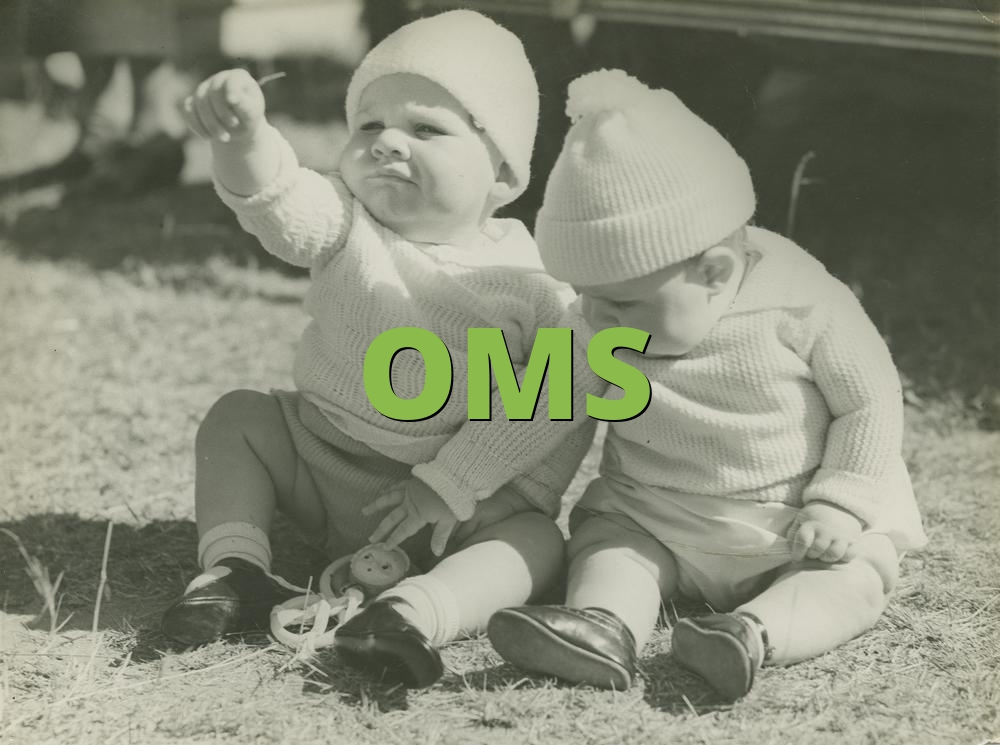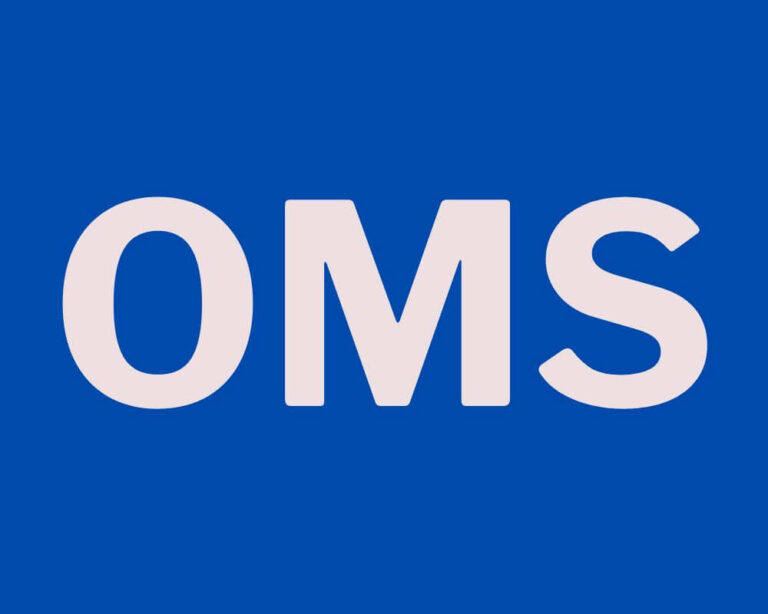In today's digital age, slang terms are evolving faster than ever, and one term that has gained significant traction is "OMS." But what exactly does OMS mean? In this comprehensive article, we will explore the origins, meaning, and cultural significance of OMS slang. Whether you're a language enthusiast or just curious about internet lingo, this guide is for you.
OMS slang has become a staple in modern communication, especially among younger generations. As social media platforms continue to shape the way we interact, understanding these terms is essential for staying relevant in online conversations.
This article aims to provide a thorough understanding of OMS slang, its history, and its relevance in today's world. By the end of this guide, you'll not only know what OMS means but also how to use it appropriately in various contexts.
Read also:Discover The World Of Shemale Joi A Comprehensive Guide
Table of Contents
- What is OMS Slang?
- Origins of OMS
- OMS in Social Media
- How to Use OMS Appropriately
- OMS vs. Other Slang Terms
- Cultural Impact of OMS
- OMS in Popular Culture
- OMS and Mental Health
- Misconceptions About OMS
- The Future of OMS Slang
What is OMS Slang?
OMS stands for "Oh My S**t," a popular slang term used to express surprise, shock, or disbelief. This phrase has become a go-to expression for millennials and Gen Z when reacting to unexpected or extraordinary situations. While the term itself is not new, its prevalence in modern communication has skyrocketed due to its versatility and ease of use.
Why is OMS So Popular?
One of the reasons OMS has gained so much traction is its adaptability. Whether you're reacting to a hilarious meme, a shocking news headline, or a friend's outrageous story, OMS can convey the appropriate level of astonishment. Its informal nature makes it perfect for casual conversations, both online and offline.
Origins of OMS
The roots of OMS can be traced back to early internet culture, where abbreviations and acronyms were commonly used to simplify communication. As online communities grew, so did the need for quick and relatable expressions. OMS emerged as a natural evolution of similar terms like OMG (Oh My God) and WTF (What The F**k).
How Did OMS Evolve Over Time?
Initially, OMS was primarily used in text messages and online chat rooms. However, with the rise of social media platforms like Twitter, Instagram, and TikTok, the term gained widespread recognition. Its popularity was further fueled by influencers and content creators who incorporated it into their daily vocabulary.
OMS in Social Media
Social media has played a pivotal role in the global adoption of OMS slang. Platforms like Twitter, with their character limits, have encouraged users to adopt concise and impactful language. OMS fits perfectly into this paradigm, allowing users to express complex emotions in just three letters.
Examples of OMS in Social Media
- Reacting to a viral video: "OMS, did you see that flip?"
- Commenting on a celebrity scandal: "OMS, this is getting out of hand!"
- Responding to a friend's update: "OMS, congrats on the promotion!"
How to Use OMS Appropriately
While OMS is a versatile term, it's important to use it in the right context. Overusing or misusing slang can lead to misunderstandings or come across as inauthentic. Here are some tips for incorporating OMS into your conversations:
Read also:Kate Hudson Political Views A Comprehensive Exploration
- Use OMS when expressing genuine surprise or disbelief.
- Avoid using it in formal settings or professional communication.
- Be mindful of your audience and their familiarity with slang terms.
OMS vs. Other Slang Terms
OMS is often compared to other popular slang terms like OMG and WTF. While these terms share similarities, they each carry unique connotations:
OMS vs. OMG
OMS is generally considered more casual and lighthearted than OMG, which can sometimes convey a sense of reverence or awe.
OMS vs. WTF
While both terms express disbelief, OMS is less confrontational and more suitable for everyday conversations. WTF, on the other hand, is often used to express frustration or anger.
Cultural Impact of OMS
The cultural significance of OMS extends beyond its use as a slang term. It reflects the evolving nature of language and communication in the digital age. As younger generations continue to shape the linguistic landscape, terms like OMS serve as a testament to their creativity and adaptability.
OMS in Different Cultures
Although OMS originated in English-speaking countries, its influence has spread globally. In many non-English speaking regions, OMS has been adapted to fit local languages and dialects, further cementing its status as a universal expression of surprise.
OMS in Popular Culture
OMS has made its way into various forms of media, from movies and TV shows to music and literature. Its inclusion in popular culture has helped solidify its place in the modern lexicon.
Notable Examples of OMS in Media
- TV Shows: Characters in shows like "The Office" and "Friends" have used OMS to comedic effect.
- Music: Songs by artists like Taylor Swift and Drake have referenced OMS in their lyrics.
- Books: Modern novels often incorporate slang terms like OMS to reflect contemporary dialogue.
OMS and Mental Health
While OMS is primarily used for lighthearted expressions, it can also play a role in mental health discussions. In informal settings, terms like OMS can help individuals process and articulate their emotions in a non-threatening way.
OMS as a Coping Mechanism
For some, using OMS can be a form of catharsis, allowing them to express shock or disbelief in a humorous manner. This can be particularly beneficial in stressful or overwhelming situations.
Misconceptions About OMS
Despite its widespread use, there are still misconceptions about OMS. Some people believe it is a vulgar term, while others think it lacks depth. However, these assumptions overlook the term's cultural significance and versatility.
Addressing Common Misconceptions
- OMS is not inherently vulgar; its impact depends on the context in which it is used.
- OMS can convey a wide range of emotions, from joy to disbelief, making it a valuable addition to modern communication.
The Future of OMS Slang
As language continues to evolve, the future of OMS looks promising. With each new generation comes a fresh wave of slang terms, but OMS's adaptability and universality ensure its relevance for years to come.
In conclusion, understanding OMS slang is more than just keeping up with trends; it's about embracing the dynamic nature of language in the digital age. By incorporating OMS into your vocabulary, you can connect with others on a deeper level and contribute to the ever-changing linguistic landscape.
Kesimpulan
OMS slang has become an integral part of modern communication, offering a versatile and relatable way to express surprise and disbelief. From its origins in early internet culture to its current status as a global phenomenon, OMS continues to shape the way we interact and communicate.
We encourage you to share your thoughts on OMS in the comments below. Do you use OMS in your daily conversations? How has it impacted your communication style? Don't forget to explore our other articles for more insights into language and culture!
Data Sources:

